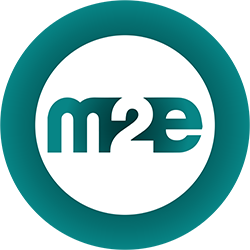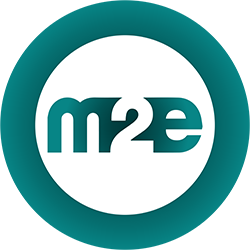We are a global platform connecting institutions, employers, students, job seekers, and recruitment partners.
Join Us Today:
Get in touch with us!
Why Choose Germany?
Germany Immigration Opportunities: 1.8 Million Job Openings!
Germany is facing a significant demand for skilled professionals, with 1.8 million job openings available across various industries. To meet this growing need, Germany is looking to welcome 400,000 skilled immigrants each year. What makes this even more attractive is that no IELTS is required, and professionals can earn an average annual salary of €50,000.
Germany is the 5th largest economy globally, offering not just economic opportunities but also a high standard of living and robust social benefits. It’s a prime destination for individuals and families seeking a prosperous future.
Germany’s immigration system provides multiple pathways for skilled workers, especially in sectors like IT, engineering, healthcare, and more. Whether you’re looking to start a new career or settle with your family, Germany provides a stable and welcoming environment for skilled professionals from around the world.
Explore the Skilled Worker Visa and EU Blue Card options to take your next career step in Germany.


Types of German Visas
A German visa is an official document that allows non-citizens to enter Germany for various purposes, such as visiting, working, studying, or starting a business. It also enables transit through Germany’s international airports. Below is a list of the most common types of visas issued by Germany:
- Visit Visa: For tourists and visitors who plan to stay in Germany for up to 90 days within a 180-day period. This is usually part of the Schengen visa.
- Business Visa: For individuals traveling to Germany for business purposes, such as attending meetings, conferences, or business-related events.
- Student Visa: Issued to international students accepted into a German university or educational institution. It allows for long-term stays and studies.
- Work Visa: For individuals who have secured employment in Germany and wish to live and work there.
- Opportunity Card (Chancenkarte): A new visa type introduced to attract skilled workers. It allows qualified individuals to come to Germany and search for job opportunities.
- Dependant Visa: This visa allows family members (spouse, children) of a foreign national already residing in Germany to join them.
- Self-employment Visa: For entrepreneurs looking to start or invest in a business in Germany.
- Freelance Visa: For professionals working as freelancers in areas like art, media, IT, and more.
Each of these visa types has specific eligibility criteria and application procedures, providing a variety of pathways for different professional and personal circumstances.
Life in Germany
Quality of Life: Germany offers a high standard of living, combining modern infrastructure, a robust healthcare system, excellent education, and comprehensive social security benefits. German cities consistently rank highly in global quality-of-life indexes. Cities like Berlin, Munich, and Hamburg offer a mix of modern urban living with access to green spaces and cultural attractions.
Cost of Living: The cost of living in Germany varies depending on the city. Major cities like Munich and Frankfurt are known for their higher housing and living costs, while smaller cities and rural areas are more affordable. Generally, Germany offers a good balance between income levels and living costs, with the average annual salary around €50,000.
Work-Life Balance: Germany places a strong emphasis on work-life balance. The typical workweek is 35-40 hours, and employees enjoy significant vacation time, often around 30 days a year. Germans also value punctuality and efficiency, which contributes to a well-structured work environment.
Cultural and Social Integration: While German society is welcoming, it can take time to integrate due to language barriers. However, Germany offers many opportunities to learn German through language courses, which are often available at subsidized rates. Social integration programs also help immigrants become part of the local community. Germans tend to value privacy, but once you establish connections, relationships can be warm and lasting.
Healthcare: Germany's healthcare system is one of the best globally, offering both public and private insurance options. Public health insurance covers most medical expenses, and access to quality care is available throughout the country.
Education: Germany boasts excellent public education, from primary to higher education. Public universities are either free or have low tuition fees, even for international students. This makes Germany a popular destination for students worldwide.
Safety: Germany is considered a very safe country, with low crime rates and well-maintained public order. The country’s cities are known for their efficient public transport systems, which further contribute to a safe environment for residents.
Diversity and Culture: Germany is rich in cultural diversity, offering a blend of historic sites, modern arts, and global cuisines. Festivals like Oktoberfest in Munich and the Berlin Film Festival draw people from all over the world. Each region in Germany also has its own unique cultural practices and traditions.
In summary, life in Germany provides a blend of economic opportunity, social security, and cultural richness, making it an attractive destination for expatriates.


Best cities in Germany to live in
Germany is one of the largest countries in Europe and is among the top destinations for skilled workers worldwide. It is a major economic force and a top place to live and work. The population of Germany is around 82 million. Berlin is the capital of Germany. In terms of area, Berlin is nine times larger than Paris.
- Munich: High quality of life, strong economy, cultural events like Oktoberfest.
- Hamburg: Major port city with a thriving economy, arts, and music scene.
- Essen: Industrial history, now a cultural and business hub.
- Leipzig: Fast-growing city, affordable living, vibrant arts and startup culture.
- Cologne: Known for its cathedral and media industry, lively social scene.
- Berlin: Capital city, cosmopolitan lifestyle, rich in culture and tech jobs.
- Dortmund: Affordable, industrial roots, now tech-focused.
- Stuttgart: Automotive industry hub, high living standards.
- Düsseldorf: Business and financial center, known for fashion and trade fairs.
- Frankfurt am Main: Financial capital, major global banking hub.
Benefits of migrating to Germany
- Strong Job Market: Germany has a thriving job market, especially for professionals in engineering, IT, and manufacturing, with a high demand for skilled workers across various sectors.
- Free Healthcare and Education: Residents enjoy excellent benefits, including free healthcare and free or low-cost education, making it an attractive destination for families and individuals alike.
- High Quality of Life: Many German cities rank among the ‘World’s Most Liveable Cities’, offering a high standard of living with well-developed infrastructure, efficient public transport, and green spaces.
- Shortage of Skilled Workers: There is a shortage of skilled professionals in various sectors, providing ample opportunities for qualified migrants to fill these positions.
- Quick Visa Process: Germany offers one of the fastest visa decisions among leading economies, enabling better planning for migrants.
- Competitive Salaries and EU Access: Germany provides competitive salaries and benefits, and once you have a visa, you gain access to the entire European Union for travel and work.
- Largest Economy in Europe: As the largest populated country in Western Europe and the largest economy in Europe, Germany presents substantial economic stability and opportunities for career growth.
- Popular Migration Destination: Germany is the second most popular migration destination globally after the United States, making it an attractive place for both skilled professionals and business immigrants.
- High Wages: Wages in Germany are typically higher than in many other countries, contributing to an attractive standard of living.
- Migration Demand: To sustain its economy, Germany needs 400,000 migrants per year, creating ample opportunities for skilled professionals seeking long-term careers in Europe.


Get Yourself Evaluated
Migration is a simple technical procedure. Our specialists assess your profile to guide you in making a knowledgeable choice. The report provides details on your eligibility evaluation.
- Score Card
- Country Profile
- Occupation Profile
- Documentation List
- Cost & Time Estimation
*Check your eligibility to migrate to Germany through the Group Germany Immigration
How to Migrate to Germany
The best way to migrate to Germany is through the Opportunity Card, a long-term residence permit that lets you search for a job in Germany for up to one year (extendable by another year).
Steps:
- Apply for the Opportunity Card and travel to Germany to job-hunt.
- Once you secure a job, convert it into a Work Permit.
- After 5 years of employment, apply for Permanent Residency (PR).
- After 5 years with PR, apply for German citizenship.
This process is efficient and allows skilled workers to build a long-term future in Germany.

Germany Work Permit Visa
Germany is an excellent destination for professionals, offering a wide range of job opportunities, low unemployment rates, and strong work-life balance. Many foreign workers seek employment in Germany due to its high-paying jobs and attractive career development opportunities.
Germany Work Permit Requirements:
- Qualifications: You must have qualifications recognized in Germany or equivalent qualifications from your home country.
- Job Offer: You need a job offer from a German employer.
- Salary Requirements: As of 2022, you must have a gross annual salary of at least €46,530, or alternatively, provide proof of a sufficient old-age pension.
Jobs in Germany:
Germany is actively seeking skilled workers, especially in shortage occupations such as:
- Engineers
- Technicians
- Scientists
- IT Specialists
With over 1.2 million job vacancies, Germany is in urgent need of qualified professionals to fill these roles, making it a prime location for job seekers looking for long-term career prospects.
This combination of opportunities and favorable conditions makes Germany an attractive place to work and live for foreign professionals.
| Designation | Annual Salary in Euros |
| Full Stack Engineer/Developer | €59,464 |
| Front End Engineer/Developer | €48,898 |
| Business analyst, product owner | €55,000 |
| Cyber Security Analyst, Cyber security engineer, cyber security specialist | €51,180 |
| QA Engineer | €49,091 |
| Construction engineer, Civil engineer, architect, project manager | €62,466 |
| Android Developer | €63,948 |
| Java Developer | €50,679 |
| DevOps/SRE | €75,000 |
| Customer Contact Representative, Customer Service Advisor, Customer Service Officer | €5,539 |
| Accountant | €60,000 |
| Chef, commis-chef, sous chef, cook | €120,000 |
| Project Manager | €67,000 |
| HR Manager, HR Coordinator, HR Generalist, HR Recruiter | € 49,868 |
| Data Engineering, SQL, Tableau, Apache Spark, Python (Programming Language | €65,000 |
| Scrum Master | €65,000 |
| Test engineer, software test engineer, Quality engineer | €58,000 |
| Digital Strategist, Marketing Analyst, Marketing Consultant, Social Media Marketing Manager, Growth Specialist, Sale Manager | €55,500 |
| Design Engineer | €51,049 |
| Project Engineer, Mechanical Design Engineer, | €62,000 |
| Mechanical Engineer, Service Engineer | €62,000 |
| Electrical Engineer, Project engineer, Controls engineer | €60,936 |
| Manager, Director Pharma, Clinical Research, Drug Development | €149,569 |
| Data Science Engineer | €55,761 |
| Back End Engineer | €56,000 |
| Nurse | €33,654 |
List of IT companies offering jobs in Germany
Cognizant is at the top and is looking to hire software engineers, designers, and technical leads.
- Cognizant
- Amazon
- Microsoft
- SAP
- Lufthansa Systems
- BMW
- Siemens
- Adidas
- Philips
German Opportunity Card Requirements
6/14 points are required to qualify for a German Opportunity card.
|
Criteria |
Maximum points |
|
Age |
2 |
|
Qualification |
4 |
|
Relevant work experience |
3 |
|
German Language Skills/English Language Skills |
3 |
|
Previous stay in Germany |
1 |
|
Spouse qualifying for opportunity card |
1 |
|
Total |
14
|
Germany Entrepreneur Visa
In Germany, you can establish a business in one of two main ways:
- Freelancer (Freiberufler): This applies to those offering personal services, like artists, writers, and healthcare professionals. Freelancers are generally exempt from the requirement to register a business and are taxed differently.
- Self-Employed Entrepreneur (Gewerbe): This is ideal for individuals looking to start a company, like a retail shop or a tech startup. Entrepreneurs must register their business and follow local laws and regulations.
Understanding the difference between Freiberufler and Gewerbe is crucial when deciding the best approach to starting your business in Germany.
Germany Student Visa
Germany is a top study destination due to its world-class education system and vibrant student life. Universities in Germany have two main intakes:
- Summer Intake (March to August): Application deadline is January 15.
- Winter Intake (September to February/October to March): Application deadline is July 15.
It’s important to check the specific deadlines of each university, as they may vary slightly from these general timelines.
Germany Family Sponsorship
Residents in Germany who are third-country nationals can bring their family members to Germany using a Family Sponsorship Visa. This visa supports family reunification and allows non-EU nationals to join their family members in Germany, either temporarily or permanently.
Germany PR Visa
To obtain Permanent Residency (PR) in Germany:
- You need to have been employed in Germany for at least three years.
- You must possess a residence visa.
- Self-employment is required when applying for the PR visa.
Achieving PR status allows you to live in Germany indefinitely and access many social benefits.
M2S Group – Top German Immigration Consultants in Poland
M2S Group, renowned as Europe's leading immigration consultancy, provides unbiased and personalized services tailored to the unique needs of each client. Their offerings include:
- Expert Guidance for Germany Immigration: Comprehensive counseling to simplify the immigration process.
- Germany Immigration Points Calculator: Free checks to assess eligibility for immigration to Germany.
- German Language Coaching: Support to help clients improve their language skills for smoother integration.
- Expert Career Counseling: Professional advice to help individuals find the right job opportunities in Germany.
M2S Group is dedicated to ensuring that every client receives expert support, helping them achieve successful immigration to Germany.
Frequently Asked Questions
- What are the main ways to migrate to Germany?
-
The most common pathways include:
- Work Visa: For individuals who have a job offer from a German employer.
- Student Visa: For international students accepted into a German university.
- Entrepreneur Visa: For those looking to start a business or become self-employed.
- Family Reunion Visa: For family members of residents or citizens of Germany.
- Opportunity Card: A new visa for skilled workers seeking employment in Germany.
- What are the basic requirements for a German Work Visa?
-
- Recognized qualifications: Your degree or training must be recognized in Germany.
- Job offer: You must have an employment contract with a German employer.
- Salary requirements: As of 2022, the gross annual salary for high-skilled workers must be at least €46,530.
- Health insurance: Mandatory for all residents.
- Do I need to speak German to migrate?
-
It depends on the visa type. For some jobs, speaking German is not mandatory, especially in tech or multinational companies. However, learning the language can help in daily life and with integration.
- Can I bring my family with me to Germany?
-
Yes. Through the Family Reunion Visa, legal residents of Germany can sponsor their spouse, children, or other close family members to join them.
- How can I get permanent residency (PR) in Germany?
-
You can apply for PR after living in Germany for at least five years. During this period, you must have had employment, sufficient income, and health insurance. PR allows you to live and work in Germany indefinitely.
- What is the Opportunity Card?
-
The Opportunity Card is a visa option for skilled workers, allowing them to come to Germany to search for a job. It offers a year of residence, extendable by one more year if needed.
- Can I migrate to Germany as a freelancer?
-
Yes, freelancers can apply for a Freelance Visa, which allows individuals in professions like art, writing, and consulting to live and work in Germany.
- What is the cost of living in Germany?
-
Cost of living varies by city. Larger cities like Munich and Berlin are more expensive, while smaller cities and towns are more affordable. Rent, healthcare, and public transportation are key expenses.
- What are the advantages of migrating to Germany?
-
Benefits include:
- Free or affordable education.
- High-quality healthcare.
- Excellent work-life balance.
- Access to the EU's Schengen Zone, allowing visa-free travel across Europe.
- Who needs a visit visa for Germany?
-
Citizens of non-EU/EEA countries generally require a Schengen visa to visit Germany for up to 90 days within a 180-day period.
- How long can I stay on a visit visa?
-
The Schengen visa allows a stay of up to 90 days within a 180-day period.
- What is a Germany business visa?
-
The Business Visa is issued to individuals traveling for business meetings, conferences, or professional activities for short durations (up to 90 days).
- What documents are needed for a business visa?
-
Required documents include a business invitation, travel itinerary, proof of accommodation, and financial means to support your stay.
- Who is eligible for a German student visa?
-
Non-EU/EEA students accepted to a German educational institution need to apply for a student visa.
- How long can I stay on a student visa?
-
The student visa is valid for the duration of your studies, often up to two years, with options for extensions.
- How long can I stay on a student visa?
-
The student visa is valid for the duration of your studies, often up to two years, with options for extensions.
- What is a German work visa?
-
A work visa allows non-EU/EEA nationals to live and work in Germany based on an employment offer from a German company.
- What are the requirements?
-
You must have a recognized qualification, a job offer, and a salary that meets the minimum threshold (e.g., €46,530 for highly skilled professionals).
- What is the Opportunity Card?
-
The Opportunity Card is a residence permit that allows you to move to Germany and look for a job for up to one year, extendable by another year if necessary.
- What are the eligibility requirements?
-
You must be a skilled worker with recognized qualifications or experience, and proof of financial resources to support yourself during the job search.
- What is a dependant visa?
-
A Dependant Visa allows family members (spouse, children) of a resident or worker in Germany to join them.
- Can dependents work in Germany?
-
Yes, spouses can usually work if they are granted a residence permit along with the dependant visa.
- What is a self-employment visa?
-
This visa allows individuals to start and run their own business or enterprise in Germany.
- What are the requirements?
-
You need a solid business plan, proof of sufficient financial resources, and your business must contribute to Germany's economy.
- What is the freelance visa?
-
The Freelance Visa is for individuals offering freelance services, such as artists, writers, and IT specialists.
- How do I qualify?
-
You must provide contracts or client commitments, a financial plan, and demonstrate your ability to sustain yourself as a freelancer.
Looking for inspiration
Global clients share how M2S Group helped them secure careers, work permits, and visas in Europe...
At M2S Group, we aim to help you become a true global citizen by providing exceptional support in your international career and immigration journey.
Read MoreOur Platform
We connect institutions, employers, students, job seekers, and recruitment partners worldwide.

Employer
Are you recruiting skilled workers from the CIS, African, Asian regions, or other EU countries to work in Poland, Hungary, Lithuania, Slovakia, Estonia, Germany, and other EU nations? Partner with Moving2Europe.eu for efficient and reliable recruitment solutions.

Job seekers
Are you looking to work in Poland, Hungary, Lithuania, Slovakia, Estonia, Germany, or other EU countries? Could you let Moving2Europe. Can you connect with top employers and help with recruitment?

Recruitment Agency
Do you recruit prospective students and workers eager to study or work in Poland, Hungary, Lithuania, Slovakia, Estonia, Germany, or other EU countries? Join Moving2Europe.eu as a trusted Recruitment Partner and grow your network globally.
Do you have any questions?
We are here to help you explore opportunities to work and live in Europe. Our experts are ready to assist you with questions about job searching, obtaining a visa, recognising qualifications, and learning a European language. To learn more about contacting us, please click on one of the icons in the bar below.









